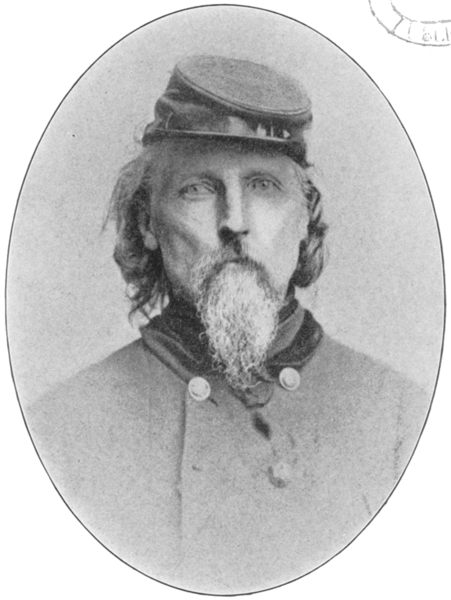Friedrich Hecker, „Forty-Eighter“
- 02. September 2018 - Emigration, General, German-American, Germany, Historical Events, History, Knowledge, Personalities
Friedrich Hecker was one of the faces of the German revolutions of 1848-1849. Like many of his companions he emigrated after the failing of the revolution or single uprisings. On 20 September 1848, he boarded a ship to New York in Le Havre and became a farmer in Illinois. Later, He fought in the American Civil War.
Friedrich Hecker and the German revolutions of 1848-1849
The son of a civil servant was born on 28 September 1811 as Friedrich Karl Franz Hecker in Eichtersheim in the grand duchy of Baden. He later studied law and did his doctorate at the University of Heidelberg.
Kindled by the French revolution of 1848 the German revolutions started in the grand duchy of Baden. Friedrich Hecker not only supported the liberal, democratic uprising that called for democratic reforms and the unity of the country - during the initial phase he was as a radical democrat a vital part of the German revolutions of 1848-1849. Particularly in his home country Baden there was a veritable cult of personality. To this day the so-called “Heckerhut” (Hecker hat) is a known term.
Disappointed by the „Vorparlament“ (pre-parliament) in Frankfurt, he called for a an armed civilian militia to move from the liberal Konstanz to the royal seat in Karlsruhe together with Gustav Struve and others in April 1849. It went down into history as the so-called “Hecker uprising”, but was stopped by German troops near Kandern.
Heckers emigration and other „Forty-Eighters“ during American Civil War
After the defeat, Hecker escaped to Muttenz near Basel. From there, he traveled to Strasbourg and Le Havre. On 20 September 1848 he boarded a ship to New York and emigrated.
In Illinois he became a farmer. In 1849 he returned to Baden to support the Baden Revolution. However, it was defeated soon afterwards and he returned to the US.
Most German emigrants in the 19th century fled from bad economical conditions. Political persecution was only a minor cause for emigration. However, in the US the so-called „Forty-Eighters“, meaning activists of the revolutions, are especially remembered. One reason is probably that they often committed themselves to political or social causes in their new home country. During the American Civil War from 1861 to 1865, many Forty-Eighters fought for Abraham Lincoln on the side of the Union in the North. They were fighting again for their values: freedom (abolition of slavery) and unity (of the country). However, there were also Forty-Eighters fighting for the other side, meaning the Confederate States in the South.
In general, many Germans fought in the American Civil War. There were even German regiments and a particularl large number of German soldiers came from New York, Ohio, Pennsylvania, Illinois, Indiana, Missouri and Wisconsin. In total, about 200,000 Germans fought for the Union. Probably only a small part could be called Forty-Eighters, however they often had high military ranks.
Friedrich Hecker was involved with the Republicans in Illinois since 1856. He volunteered to fight in the American Civil War together with his son. For some time he was even a colonel.
Hecker survived the war and visited his home country Baden for a last time in 1873. He died on 24 March 1881 at his farm in Illinois.


07. July 2024
Das ist mein ur-ur opa! You go with your bad self, Friedrich Hecker!
10. January 2023
Dear Frank,
As with your questions regarding his emigration under another of our blog posts, these are rather particular questions which we cannot answer without checking the sources ourselves.
If you are interested in us doing any research on your behalf, we will be delighted if you contact us via email for further details (info@beyond-history.com).
In any case: all the best with your research!
Best regards,
Your Beyond History Team
01. January 2023
Greetings,
I am investigating ancestor Carl Stich. Born 1822 in Welschingen, Baden. In 1848 he was in the 2nd Infantry Regiment.
I'm trying to figure out:
1) Was he involved in mutiny at Fortress Rastatt?
2) How did he escape capture?
3) How did he make his way to America?
Any help or references would be appreciated.